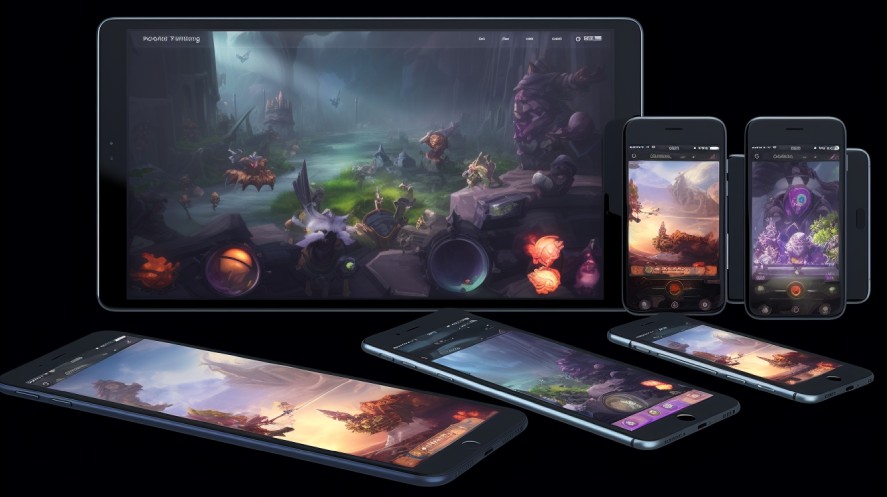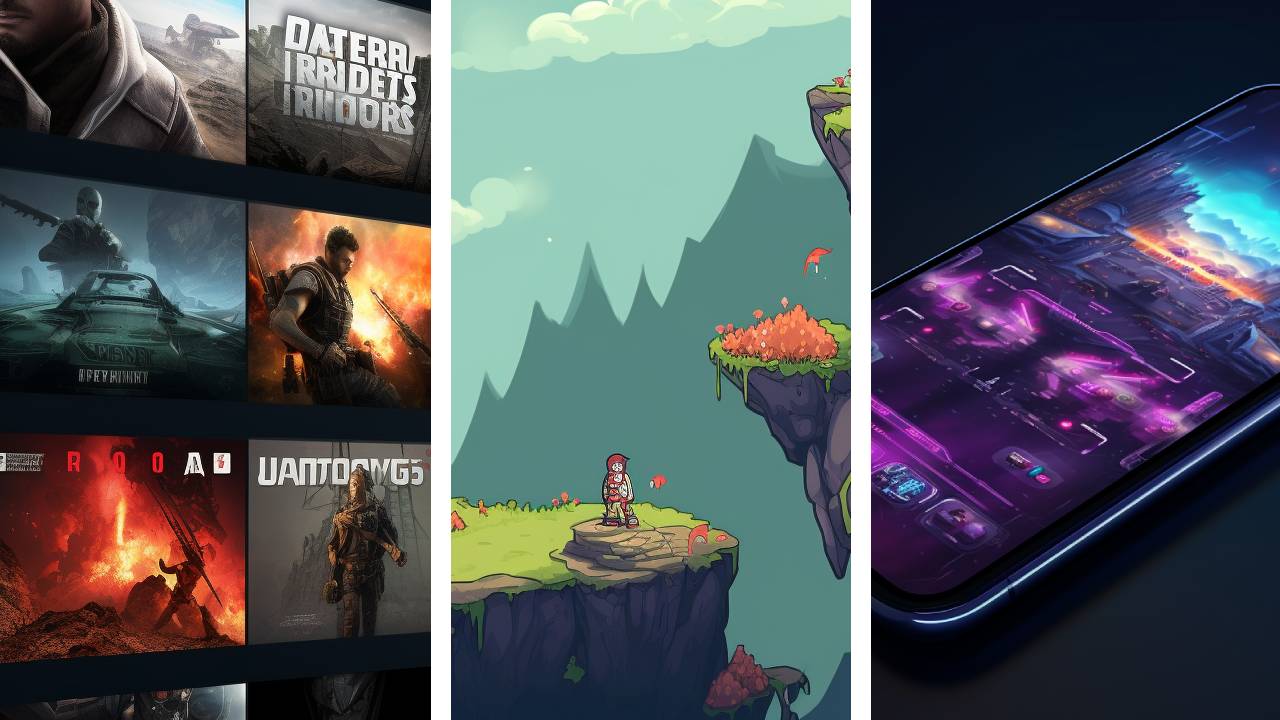Game publishing is a crucial aspect of the gaming industry, responsible for bringing games to market and facilitating their success.
In this article, we will explore the different types of game publishers, their roles, and their significance in the gaming landscape.
The Role of Game Publishers
So, what is a game publisher, and what does a publisher do in gaming?
Game publishers play a vital role in video game development and distribution of games. They provide financial support, marketing expertise, and distribution channels to ensure a game’s success.
The relationship between game developers and publishers is collaborative, with the publisher handling various aspects of production and promotion.
That said, choosing the right game publisher is crucial for the success of a game.
To learn more about what do video game publishers do and the difference between publisher vs developer, check out this article.
Different Niches/Types of Game Publishers
The world of game video game publishing is diverse, encompassing various types and niches of publishers. Each type brings its unique approach and focus to the game industry.

Let’s explore these different types of game publishers, including their characteristics, popular examples, and the advantages and disadvantages of working with them.
1. AAA Game Publishers
AAA game publishers represent the top tier in the gaming industry, known for producing high-budget, blockbuster games that often push the boundaries of technology and innovation.
These publishers invest heavily in marketing and distribution to ensure widespread visibility and reach.
Advantages:
- Vast financial resources to support large-scale game development projects.
- Extensive marketing capabilities to maximize exposure and reach a wide audience.
- Established distribution networks for the widespread availability of games.
Disadvantages:
- Creative constraints and a focus on market trends may limit developer freedom.
- Higher pressure for commercial success and meeting sales targets.
Examples of prominent AAA video game publishers include Electronic Arts (EA), Ubisoft, and Activision.
2. Indie Game Publishers
Indie game publishers specialize in working with independent developers and focus on fostering creativity and originality.

They support unique and innovative game concepts, allowing developers to maintain creative control over their projects.
Advantages:
- Emphasis on creative freedom and unconventional game ideas.
- Closer collaboration between publishers and developers, often resulting in more personalized support.
- Opportunity to stand out in a crowded market by exploring niche genres and experimental gameplay.
Disadvantages:
- Limited marketing budgets and resources compared to larger publishers.
- Smaller reach and visibility, may require additional effort to build an audience.
Notable indie publishers include Devolver Digital, Annapurna Interactive, and Raw Fury.
3. Mobile Game Publishers
Mobile game publishers specialize in games designed for smartphones and tablets, capitalizing on the widespread popularity of mobile gaming.

They possess expertise in optimizing games for touch-based controls and monetization strategies tailored to mobile platforms.
Advantages:
- Deep understanding of the mobile gaming market and user preferences.
- Expertise in user acquisition and engagement strategies specific to mobile platforms.
- Access to established distribution channels in app stores.
Disadvantages:
- Intense competition within the mobile gaming market.
- Challenges in monetization due to free-to-play models and in-app purchases.
Notable mobile publishers include Supercell, King, and Zynga.
4. Hybrid Publishers
Hybrid publishers bridge the gap between AAA and indie publishing, catering to games of varying scales and budgets.

They provide a mix of financial support, marketing expertise, and creative freedom.
Advantages:
- A balance between financial resources and creative freedom.
- Support for games that fall between indie and AAA categories.
- Opportunities to work on unique and diverse projects.
Disadvantages:
- Potential limitations in terms of financial backing compared to AAA publishers.
- May not offer the same level of marketing reach as larger publishers.
Notable examples of hybrid game publishing companies include Curve Digital and tinyBuild.
5. Specialized Niche Publishers
Specialized niche publishers focus on specific genres, platforms, or target audiences. They deeply understand their niche and cater to gamers with specific preferences.

Advantages:
- Expertise in niche genres, resulting in better market understanding and tailored support.
- Strong connections within the niche gaming community.
- Opportunity to work on games that cater to a passionate and dedicated audience.
Disadvantages:
- Limited market size compared to broader genres.
- Potential challenges in finding wider audience appeal outside of the niche.
Examples of niche publishers include Paradox Interactive and Focus Home Interactive.
Factors to Consider When Choosing a Game Publisher
When deciding on a game publisher, several factors should be taken into consideration. Each factor plays a crucial role in determining the success and overall experience of the game development journey.

Let’s explore these key factors in detail:
1. Understanding of the Game’s Target Audience
Choosing a video game publisher that understands and aligns with the game’s target audience is essential.
The publisher should have experience and knowledge in reaching the specific demographic the game aims to appeal to.
This understanding allows for tailored marketing strategies, effective communication, and better positioning in the market.
2. Financial and Marketing Support
Financial and marketing support are vital aspects to consider when selecting a game publisher.
Evaluate the publisher’s financial capabilities and willingness to invest in the game’s development, marketing, and distribution.
Look for publishers who can provide adequate funding for the project and have a proven track record of successful marketing campaigns.
3. Compatibility with the Developer’s Vision and Style
Ensure that the chosen publisher aligns with the developer’s creative vision and style.
It is crucial to have open and transparent communication with the publisher to gauge their understanding and appreciation of the game’s concept, mechanics, and aesthetics.
A publisher with the same artistic vision and values will contribute positively to the project’s success.
4. Publisher’s Reputation and Track Record
Research the publisher’s reputation and track record within the game industry.
Consider their history of successful game releases, critical acclaim, and relationships with developers.

A reputable publisher with a solid track record can bring credibility, visibility, and industry connections to the table, potentially opening doors to future opportunities.
5. Contractual Obligations and Rights
Thoroughly review and evaluate the contractual obligations and rights presented by the publisher.
Pay close attention to issues such as intellectual property rights, revenue-sharing models, exclusivity agreements, and distribution terms.
It is essential to clearly understand the terms and negotiate any points that may impact the developer’s long-term goals and creative control.
The Impact of the Choice of Publisher on Game Development and Success
The choice of a publisher can profoundly influence a game’s development, marketing, and overall success.
For instance, “The Witcher 3: Wild Hunt“, developed by CD Projekt Red and published by CD Projekt, serves as a prime example of a successful collaboration that propelled the game to immense popularity and critical acclaim.
Conversely, an ill-suited publisher choice can lead to creative conflicts, limited marketing exposure, and the potential failure of a promising game.
Conclusion
Understanding the different types of game publishers is crucial for developers seeking to navigate the intricate world of game publishing.
Each type of publisher offers distinct advantages and considerations.
Developers can maximize their chances of success in the highly competitive gaming industry by selecting the right publisher that aligns with their goals, target audience, and creative vision.
Loading survey...

